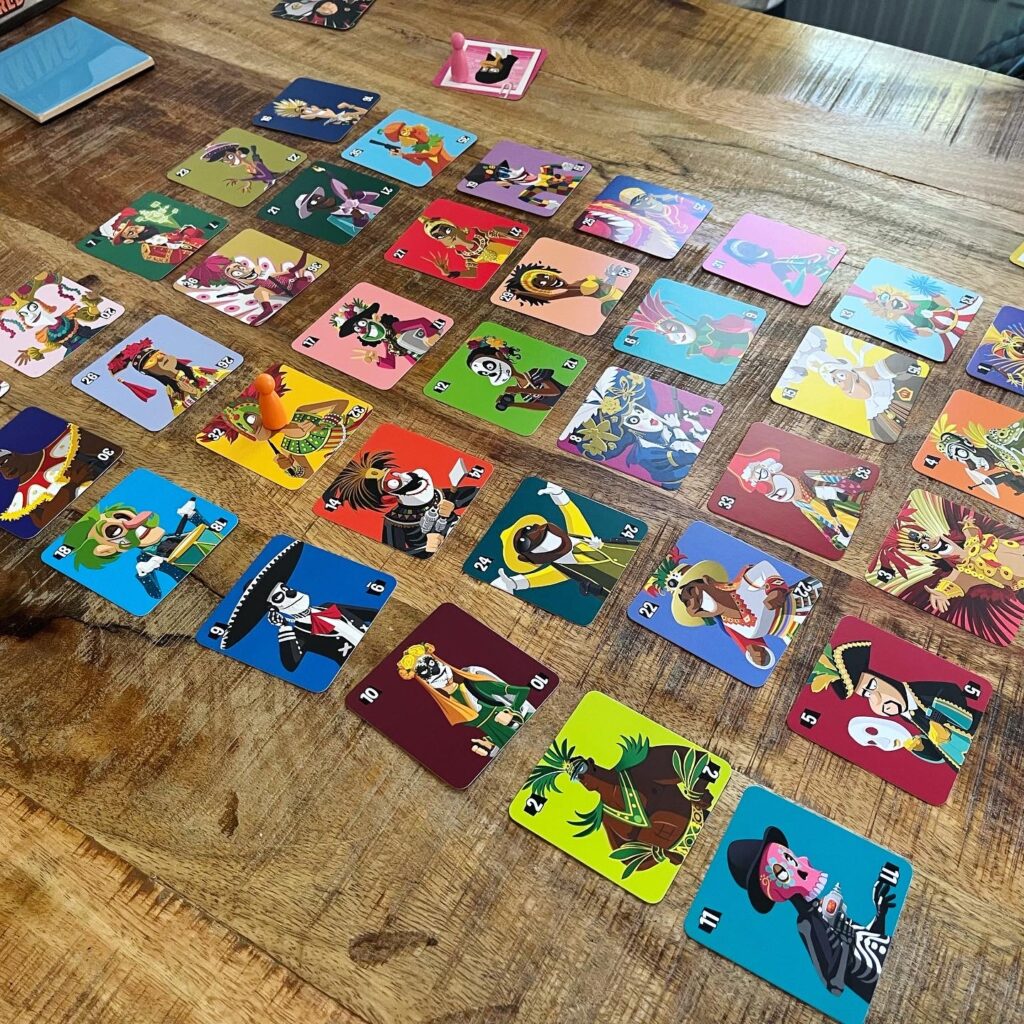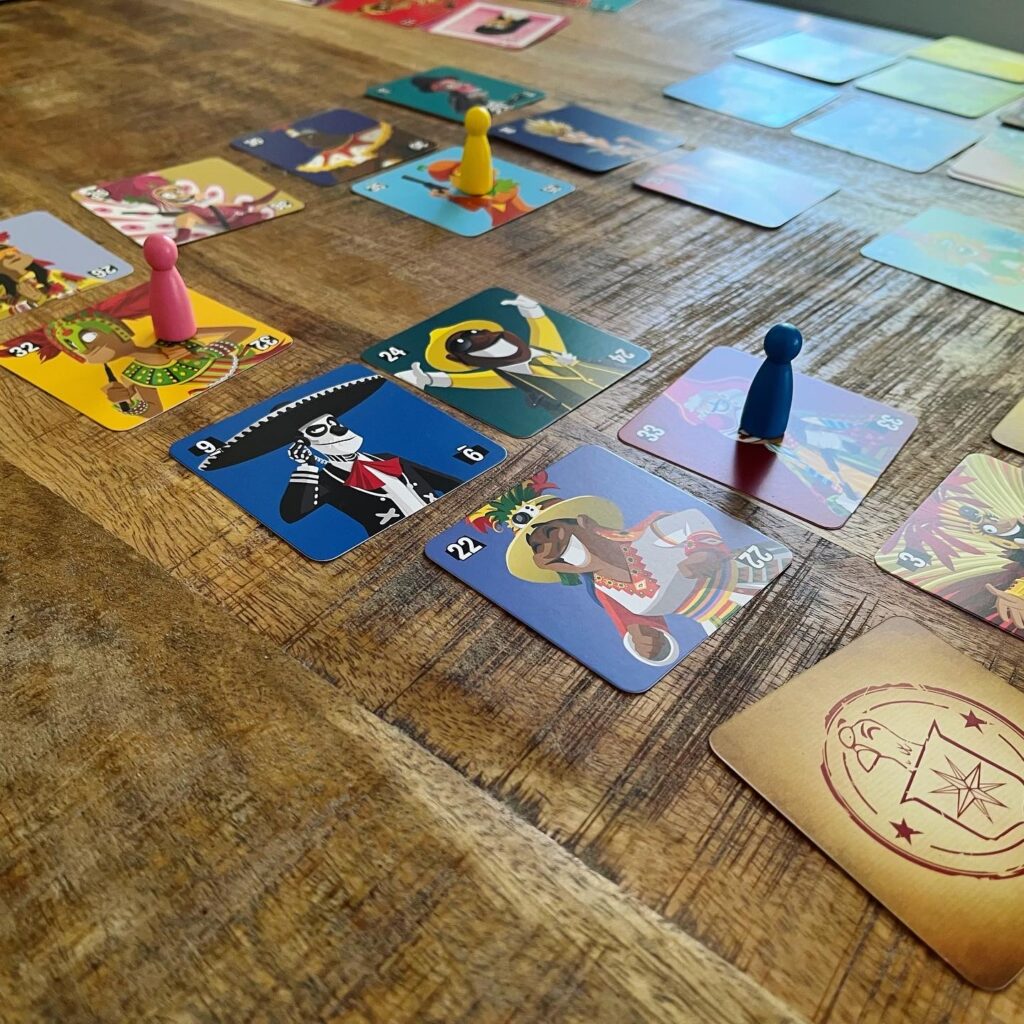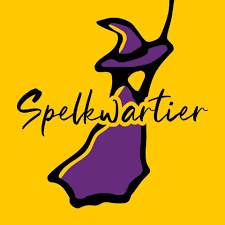Wink, where spies win with the blink of an eye, is a re-release of the game with the same name from the 1990s. After being undercover for a few years, this game is back in a new guise. A long rain coat of a secret agent that is. Deduction and subtleness are key. Are you a real 007 or a 00-never?

Wink is a party game in which players secretly try to discover who their accomplice is. A tableau is formed on the table with different character cards. Then, the same set of character cards is distributed among the players. Each player chooses a colour and corresponding card and pawn. When it is a player’s turn, the player places his or her pawn on a character card on the tableau. The player may not place the pawn on a character this player has in hand. After this, it is the next player’s turn. During the game, before the player who placed the pawn has his or her turn again, the player who has the character card in hand has the chance to signal the other player by winking and thus indicating that he or she is an accomplice. Make sure, however, that other players do not see you wink. If they suspect that a player is an accomplice, they may play one of their Intelligence cards.

You can earn points by discovering your accomplice or by unmasking other players. During the game (especially with larger groups) there are several pawns on the tableau. In the commotion, you try to discover who your accomplices are, you try to signal players by winking, and you try to unmask other players. Multitasking is difficult and often goes wrong, which of course causes hilarity at the table. You can literally win or lose by blinking, by not understanding what exactly is happening at the table or by (un)conspicuously signalling. Wink is therefore a fun party game for larger groups of players.






